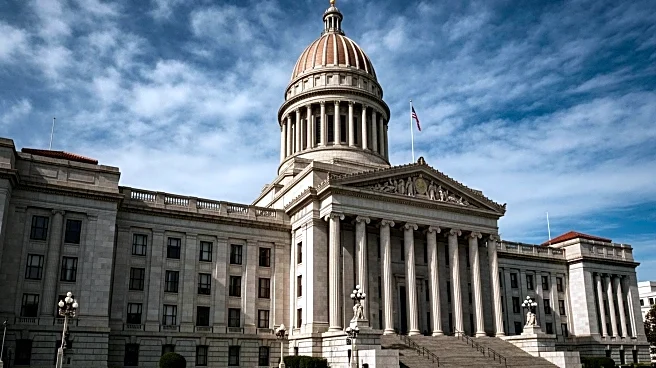What is the story about?
What's Happening?
President Trump is set to sign an executive order authorizing the U.S. Department of Defense to refer to itself as the 'Department of War.' This move aims to restore a name used until 1947, when Congress merged the War Department and Navy Department with the Air Force into the National Military Establishment, later renamed the Department of Defense in 1949. The order will allow Defense Secretary Pete Hegseth to propose legislation to make the change permanent, although only Congress can formally change the department's name. In the interim, the order instructs the department to use 'Department of War' as a secondary title in official communications. Trump has expressed that the term 'defense' is too passive, suggesting a more aggressive stance is necessary.
Why It's Important?
The renaming initiative reflects President Trump's militaristic approach and could signal a shift in U.S. defense policy. By adopting a more aggressive nomenclature, the administration may be indicating a readiness to engage in offensive military actions. This change could impact international perceptions of U.S. military intentions and influence defense policy debates. The move also highlights Trump's disregard for traditional legislative processes, as he plans to proceed without congressional approval. Stakeholders in defense and foreign policy may need to reassess strategies in light of this potential rebranding.
What's Next?
The executive order will prompt Defense Secretary Pete Hegseth to propose legislation to Congress for a formal name change. The administration may face legal and political challenges, as Congress holds the authority to officially rename federal departments. Reactions from lawmakers, military officials, and international allies are anticipated, with potential debates on the implications of such a rebranding. The order's implementation will be closely monitored for its impact on defense communications and policy.
Beyond the Headlines
The renaming could have cultural implications, reviving historical connotations associated with the 'Department of War.' It may influence public perception of military operations and the U.S.'s role in global conflicts. The decision also raises ethical questions about the administration's approach to governance and its willingness to bypass legislative processes.














